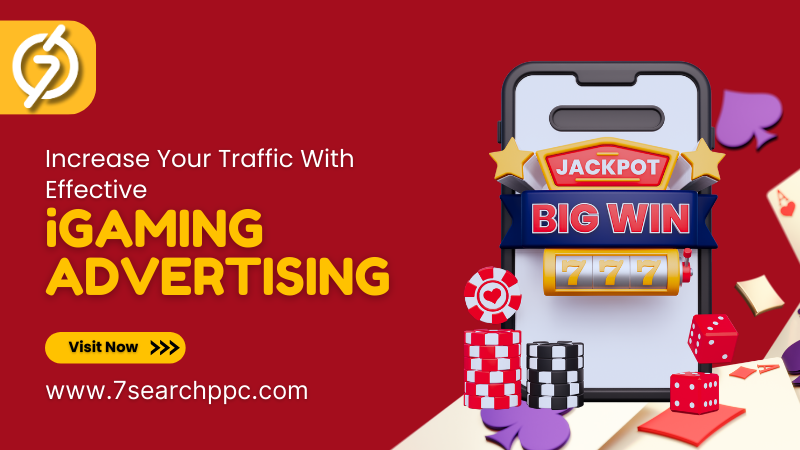Understanding Compliance Challenges in iGaming Ads

Advertising in the iGaming industry has grown at an incredible pace over the past few years. With more players exploring digital platforms for sports betting, online casinos, and lotteries, the demand for effective iGaming Ads is at an all-time high. But with this growth comes a critical obstacle that every brand and advertiser must face — compliance. The rules governing iGaming promotion are not just varied, they are constantly evolving, creating challenges that can feel overwhelming if not addressed with care.
Why Compliance Matters in iGaming Promotion
Compliance in iGaming Ads is more than a legal necessity; it is a safeguard that protects both the advertiser and the consumer. Regulators across different regions want to ensure that ads are not misleading, that they prevent underage exposure, and that they promote responsible gaming. Without strict adherence, companies risk heavy penalties, loss of licenses, and even long-term damage to their reputation.
For example, a campaign that highlights quick riches or makes exaggerated claims may capture attention in the short term but could invite scrutiny from regulators. Similarly, neglecting proper disclaimers or failing to include responsible gambling messages can create trust issues with audiences. This is where thoughtful compliance practices make all the difference.
The Biggest Compliance Challenges in iGaming Marketing
When it comes to compliance, advertisers face multiple hurdles. Some of the most common challenges include:
1. Regional Regulatory Differences
One of the main difficulties with iGaming advertisement is that regulations differ widely depending on the market. What works in the UK may not pass in the US or India. Even within Europe, countries like Spain, Italy, and Sweden have their own specific restrictions. This means advertisers cannot rely on a one-size-fits-all strategy; they must adapt messaging and creatives according to local laws.
2. Restrictions on Language and Messaging
Authorities pay close attention to the language used in iGaming Ads. Claims like “guaranteed win” or “get rich quick” are often flagged as misleading. Similarly, avoiding sensitive words or visuals that might appeal to minors is essential. Ad copy needs to strike a balance — persuasive enough to capture attention but cautious enough to remain compliant.
3. Responsible Gambling Requirements
Responsible gambling messages are now mandatory in many markets. Advertisers must include clear disclaimers about age restrictions, helplines, or links to support resources. However, making these messages visible while still creating engaging creatives can be tricky. Too small, and regulators reject them; too big, and they risk overshadowing the main call to action.
4. Platform-Specific Policies
Beyond government rules, advertising platforms like Google, Facebook, or programmatic networks have their own compliance standards. Getting approval for an iGaming advertisement often means navigating both sets of rules simultaneously. For smaller operators, this can feel like a constant uphill task.
The Cost of Non-Compliance in iGaming Advertisement
The stakes are high for those who overlook compliance. Fines can run into millions, but the bigger cost is often brand trust. A single violation can turn players away permanently. In some cases, companies have even lost licenses to operate in certain regions. This shows why compliance must not be treated as a box-ticking exercise but as an integral part of every campaign strategy.
Smart Strategies to Overcome Compliance Barriers
Although the challenges are significant, there are practical ways to navigate them without compromising on campaign effectiveness. Here are a few approaches:
1. Stay Updated with Regulations
Regulations shift frequently, which is why staying informed is non-negotiable. Following updates from regional gambling authorities and maintaining strong legal partnerships can help businesses remain one step ahead.
2. Adopt a Creative Yet Safe Messaging Style
Creativity is still possible in iGaming Ads as long as it respects boundaries. Instead of making risky promises, focus on entertainment value, immersive experiences, and transparency. Campaigns that highlight bonuses with clear conditions often perform better than vague, exaggerated ones. For a broader perspective on planning campaigns, exploring resources like adopting a strong approach for iGaming advertising can be valuable.
3. Partner with Trusted Platforms
Working with platforms that understand compliance requirements can simplify much of the process. For instance, networks built around gambling advertising often provide built-in tools for targeting, tracking, and adhering to regional rules. If you are new to the field, it can be useful to launch a test campaign to understand how compliant ads perform before scaling up.
4. Build Compliance into Creative Workflows
Instead of treating compliance as a final checkpoint, make it part of the entire creative process. Train copywriters, designers, and media planners to work with compliance in mind from the start. This reduces rejection rates and helps teams produce ads that are both engaging and regulation-friendly.
The Future of iGaming Marketing and Compliance
The iGaming sector is likely to see even stricter guidelines in the years to come. As governments tighten oversight, brands that prioritize compliance today will have a clear advantage tomorrow. Trends like AI-driven ad monitoring and programmatic buying are also pushing the industry towards more transparent practices. For advertisers, this means compliance will no longer be just about avoiding penalties but also about building trust and credibility with audiences.
Final Thoughts
Compliance challenges in iGaming Ads may feel complex, but they are not insurmountable. With the right knowledge, partners, and mindset, advertisers can create campaigns that are not only compliant but also highly effective. Treating compliance as an ally rather than an obstacle can open doors to stronger connections with players and sustainable growth in an increasingly competitive market. If you want to dive deeper into what iGaming Ads involve and how they work, you may find this resource on iGaming ads helpful.
- Art
- Causes
- Crafts
- Dance
- Drinks
- Film
- Fitness
- Food
- Giochi
- Gardening
- Health
- Home
- Literature
- Music
- Networking
- Altre informazioni
- Party
- Religion
- Shopping
- Sports
- Theater
- Wellness



